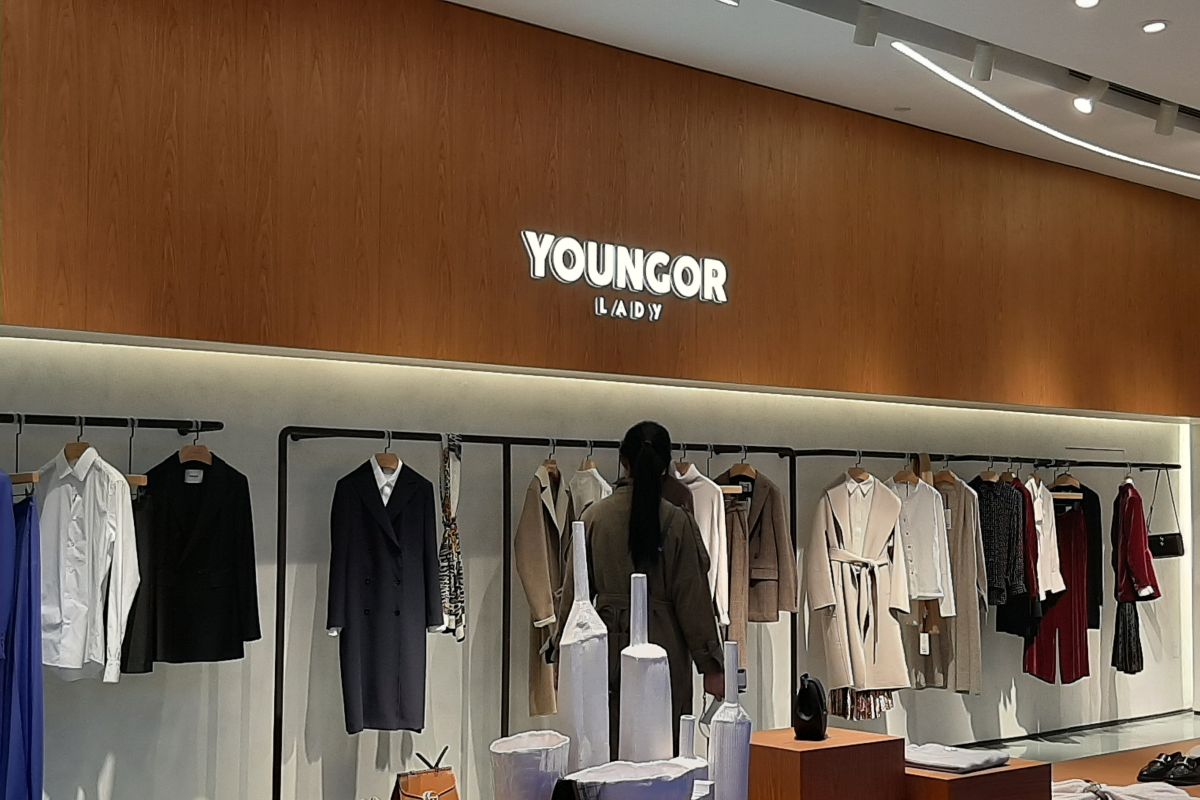We had to close some of our stores, but we also opened some new stores. We also needed to change our strategies because the consumers' shopping habits had changed, and China is a very big market,Jakarta (ANTARA) - A number of companies engaged in the fashion business have experienced difficulties and even crises over the past five years. There are quite a number of companies around the world that have been forced to close some of their stores and outlets in order to survive.
Indonesia is one of the countries experiencing this phenomenon, where one of the biggest fashion retail businesses in the country - Matahari Department Store - has also faced similar difficulties for which it has closed a number of its outlets.
Some fashion businesses in several countries around the world are indeed facing difficulties due to the changing tastes of consumers towards online shopping.
Therefore, a number of fashion businesses in several countries currently have not only experienced a crisis, but have eventually gone bankrupt.
The failure was even experienced by companies that have long been engaged in the fashion business. One of these is Forever 21, a fashion retailer from the United States, which declared bankruptcy in September 2019.
In addition to Forever 21, some other fashion business companies that filed for bankruptcy included Roberto Cavalli in April 2019, Sonia Rykiel in July 2019, Diesel in March 2019, Carven and Nine West in May 2018.
Bankruptcy experienced by so many fashion businesses shows that quite a number of them have failed to survive the shift to going online.
However, a number of other companies in the fashion business continue to survive, such as several companies in China.
Change in Strategy
Youngor Group, a clothing company from China which was established 40 years ago, claimed to have experienced difficulties and even had to close several of its outlets before changing its business strategy to survive.
"We had to close some of our stores, but we also opened some new stores. We also needed to change our strategies because the consumers' shopping habits had changed, and China is a very big market," said Gaogang Hu, the Deputy Manager of Youngor Group.
Hu mentioned some changes in the business strategy his company made to continue to survive.
One of the measures was to close a number of its small outlets and shift products and businesses to larger stores.
"We used to have a lot of small roadside shops and outlets, but now we are gradually shifting our sales to large stores in shopping centers and malls," Hu said.
Such a step was imperative, to continue serving some consumers who are still shopping conventionally, according to Hu.
Not only did Youngor close a number of outlets and small shops, they also tried to expand the store distribution area to reach more consumers in different places.
"We have not only closed our shops but are also expanding the distribution area of our stores. In the next five years, we will reduce the number of our stores from 3,000 to 1,000. Our main aim is to reduce the number of stores and expand the store areas," Hu explained.
Furthermore, the company also changed its marketing strategy to adjust to changing consumers' shopping habits towards online shopping. For this reason, the Chinese company has paid great attention to coordinating its online and offline businesses.
"Youngor has also entered the e-commerce industry, and now we are working to integrate our offline and online businesses," Hu stated.
His company also changed the way of selling, where consumers not only can buy products when shopping directly at their stores, but also have them delivered at home if they ordered online, he explained.
"Our sales person has a special application on their cellphone. This platform is great for consumers because they can also order through this application so they can buy something at night. And also our sellers can send products by post to consumers directly from the store, not the warehouse," Hu said.
Moreover, in an effort to attract more online customers, his company continues to promote its online business, Hu said.
"We have many new ways to promote our online business, including through interactions with customers. Our goal in increasing interaction is to retain our regular customers and add new ones, especially the youth," Hu pointed out.
Efficiency
In addition to adjusting its business strategies to the changing consumers' shopping habits towards online, some Chinese companies also took measures to reduce production costs.
Several clothing companies in China are trying to reduce production costs through better production systems by utilizing high technology, Hu said.
"We are changing our mode of production to be faster and more efficient by using advanced technology, where we can produce five items in one minute," he said.
For instance, Youngor uses laser-cutting machine technology to cut patterns for clothing material in its factory. Cutting clothing patterns carried out by workers can take two days, but with a laser cutting machine it can be done in just a few minutes.
In addition, by using sophisticated technology machines, companies can also reduce production costs - due to increasing labor costs in China - since many machines have been computerized and programmed to perform tasks that are usually done by workers.
Some Chinese companies have indeed chosen to use advanced technology to produce goods more efficiently, one of them is Ci Xing -- a company that uses and produces computerized flat knitting machines.
The machine uses a computer program to knit yarns into one whole seamless cloth.
"So the machine we produce and use is a 'fully automated machine'. The machine is designed to produce direct clothing intact, without having to go through several stages with different machines," said Ci Xing's business receptionist, Zheng Yiqiu.
"The machine can produce different parts of clothing at one time. So, it only takes 1.35 minutes to produce one clothing, even with different colors," she continued.
Furthermore, the company also uses as well as produces a machine that can neatly iron to-be-sold clothes with just one spray of steam.
"The machine function as a steam iron that can make a cloth neat with only one steam spray. We don't have to use manpower to iron it manually so that it can reduce the risk of damage to clothes, such as the thread being drawn and traces of hot iron which can damage clothing material," she explained.
Various efforts made by several Chinese companies in conducting their business show that the business world must be able to continue to adapt and innovate to be able to survive and succeed. (INE)
Related news: Ministry to develop digital platform to support fashion industry
Related news: Fashion industry contributes 18 percent to state revenues
Editor: Suharto
Copyright © ANTARA 2019












